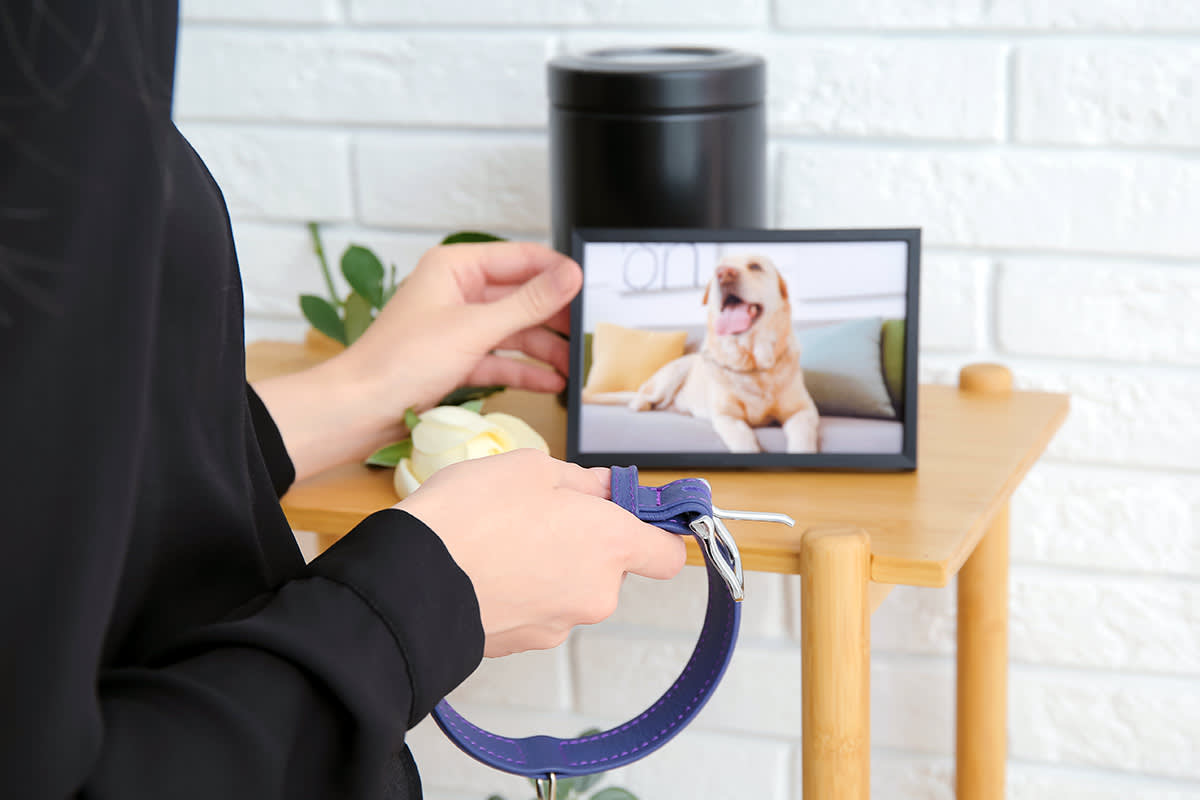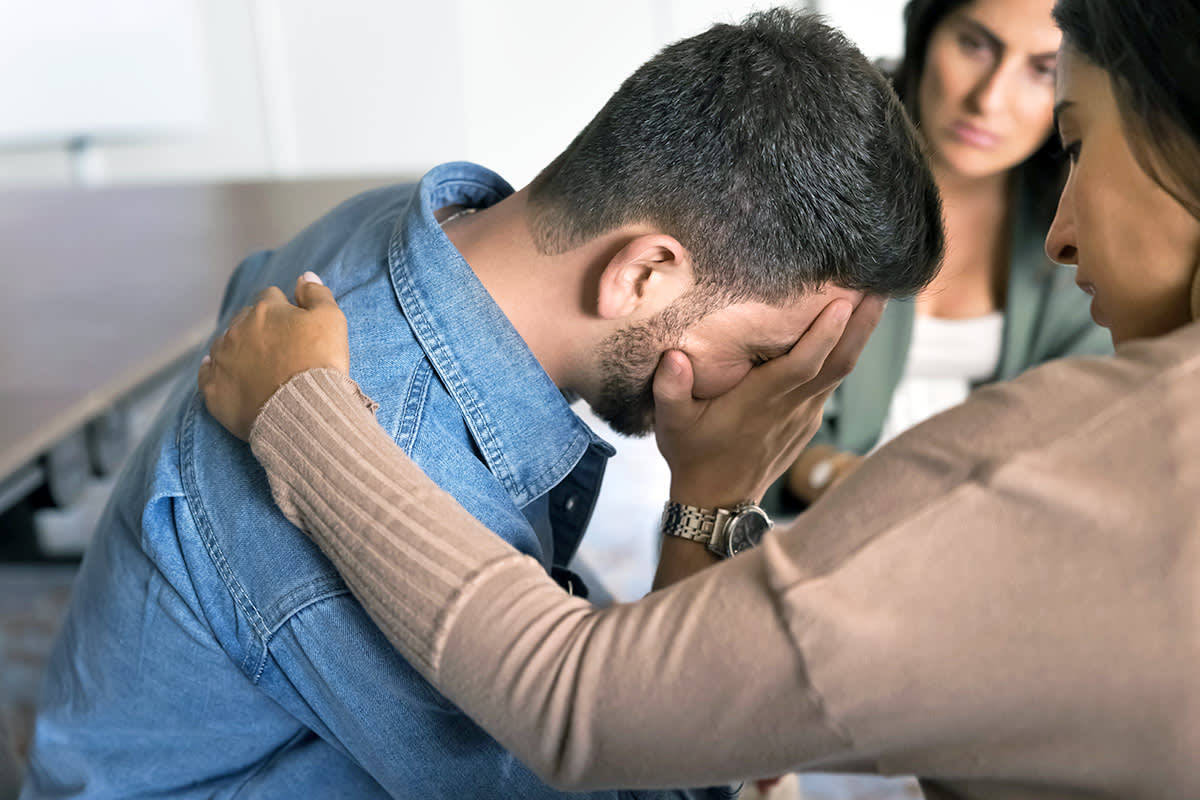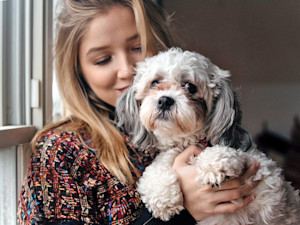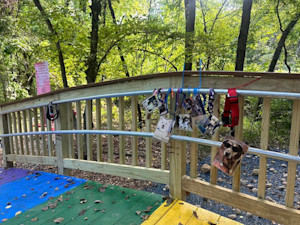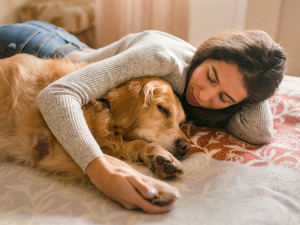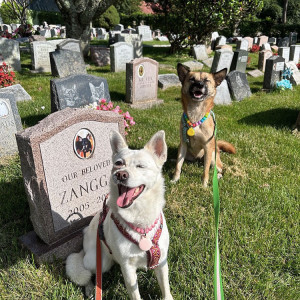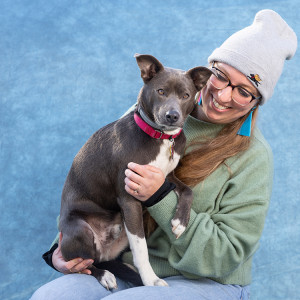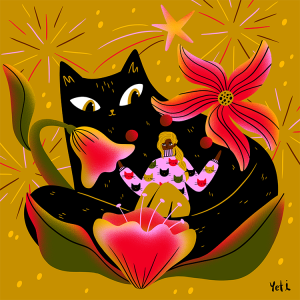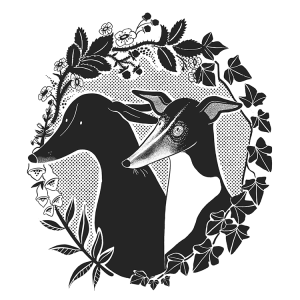The Real Reason Grieving a Pet Can Feel So Much Harder
It’s not just because they are uncomplicated and easy to love.

Share Article
When I get on the phone with the Rev. Kaleel Sakakeeny, I am not expecting to launch into a therapy session. My aim is to ask Sakakeeny, a pet-loss counselor and the founder of Animal Talks, Inc.opens in new tab, specifically about why he thinks pet grief just “hits different,” as the kids say. Why does it instantly bring on pain, tears, and shame in a way some other deaths and losses might not? And why does it hurt so bad, even years later?
I thought Sakakeeny would give me the canned answer I expected: Pets are uncomplicated, and they’re often easier to love than humans, so they’re easier to grieve, too.
But that’s not what he says. In fact, he points out immediately that pet grief is complicated, because it’s connected to all the other kinds of grief within the human experience. When a pet dies, he says, we might suddenly feel guilt that we are crying over a dog or cat — when maybe we didn’t weep as openly when a parent or grandparent died. And thinking about that only multiplies the pain.
“The loss of a pet, 99.8 percent of the time, triggers unresolved past losses,” he says. “So, we then can’t quite grieve as fully as we would like to because we’d be comparing the grief today to the grief when Mom died, and the grief when Mom died wasn’t as intense, wasn’t as great, so we feel guilty.”

And then he asked me about my grief history. Suddenly, I was telling him about my high school journalism mentor and father-figure (affectionally called “Currie”) who died by suicide when I was 17. I was one of his last phone calls.
To this day, I find it hard to express all that Currie meant to me, and I suppress the grief I still feel for his loss. It feels inappropriate and cruel to be sad about the death of a teacher when I have close friends who have lost parents and siblings. Because of the guilt I carry, that loss will always kind of feel like a broken arm that didn’t heal quite right.
Sakakeeny says my story is exactly why mourning pets feels so huge to so many people. When my childhood dog, Cinnamon, died, I immediately thought about Currie. I felt the same shame about being sad about Cinnamon as I did about Currie, and those old, not-quite-healed fissures ached a bit. (I also recognize with those names it sounds like I was mourning the contents of my spice cabinet, but I digress from that bit of dark humor.)
Grief is complex — and that is one explanation for why it feels so intense when a pet dies. But of course, there are several things at play here that make pet-grief feel so unbearable.
Pets give us unconditional love unlike any we’ve ever known.
This is the obvious answer, because it’s true. As much as we, as humans, need each other, we aren’t perfect. We mess up, we inflict pain, and sometimes we move on without even realizing the damage we’ve done. But pets? They never say anything to us that makes us bolt awake in the middle of the night and reassess our every action and self worth.
“There is not judgment, there is no betrayal, there is no criticism, not ‘Why did you wear that today?’ ‘Why did you say that to that person?’ It doesn’t exist,” Sakakeeny says. He adds that our relationships with our pets is the “closest we come to pure, unadulterated love, so when that’s gone, then we have lost our better selves, the selves we have always yearned for and cannot have in the human-to-human relationship, except in some divine sense.”
After all, pets are with us during the most vulnerable times of our lives. Kelsey Lammy, a social worker in Austin, Texas, got her dog, a girl named Charlie, when she was in her 20s. At the time, she was single, and Charlie became her “partner in crime,” helping her get through the dark days of COVID lockdown.
“I truly don’t know if my mental health would have survived without her,” she says. “I’ve always struggled with depression and anxiety, and COVID left me alone with my thoughts a lot more. But Charlie gave me a reason to get up every morning and go outside, breathe in the fresh air, and sit by the lake.”
In 2022, Lammy had to say goodbye to Charlie after she experienced a series of health issues. “I asked my now husband and my best friend to let me know when they thought it was time to put Charlie down,” she says. “It was hard because she would go through periods of seemingly having more energy and then she would regress. It was a constant up and down.”
When the time came, Lammy’s husband leveled with her. “While it was tough to hear, I’m so grateful for that conversation,” she says. “It changed my perspective. How lucky am I to love Charlie so much that it hurts this much to lose her?”
So, where does someone even start to heal from a loss so deep? When Sakeeny starts working with a client, he asks them to start from the beginning — that is, the beginning of their grief story. He has them write out the details of how they met their pet, what their life was like together, what their death was like, how that final trip to the vet was, etc.
Then they get to work on addressing the root of the client’s suffering. For example, the client might schedule an appointment to talk with the their pet’s vet and process what happened on the day of the euthanasia. This allows for patients to assess what Sakeeny calls the “continuum of grief” instead of trying to move on from the traumatic event that caused it.
Sakakeeny wished he received this kind of help when his beloved cat, Kyro, died, and he slipped into a deep depression. He went to multiple therapists, but no one ever diagnosed him with what was really going on: “[Grief over a pet] is not a mental health issue. It’s a broken heart. There’s nothing wrong with you,” he says.
We are expected to move on from it.
A pet’s death is like any other we experience; we feel the same sorrow and anguish. But as a society, we don’t value it in the same way. When we lose a family member, we might get bereavement time from work, people bake us a variety of casseroles (if you’re from the Midwest, anyway), sympathy cards flood our mailboxes. But does that happen when our pets die? Not usually.
E.B. Bartels, the author ofopens in new tab Good Grief: On Loving Pets, Here and Hereafter, touches on the importance of closure, adding that as a society we “don’t have the same rituals” when a pet dies as we do when a human being dies. “Like, your dog dies, and you just go to work the next day like nothing happened,” she tells me. “You don’t get to have a wake or a funeral or a memorial service, and those rituals help, right? That’s why we do them.”
This need for closure comes up after other kinds of loss, too — not just death. When Alice Dawes, a writer based in Melbourne, Australia, and her ex broke up, Dawes made the decision to rehome their Border Collie, Nora, through an organization that finds new homes for the breed. Nora struggled with anxiety and was “deeply triggered” by the stimuli in big-city life. The organization placed her on a farm, where, Dawes says “she could finally have the space and quiet she so clearly needed.”
While she knows Nora is happier now, Dawes still feels shame about the decision to rehome her (the organization encourages zero contact with the pets after they move). “I felt like I had failed her by not being able to provide the life she needed in the city … Even though I knew the farm was the best place for her, letting her go felt like a betrayal, and I carried a deep sense that I had somehow done wrong by her.”
She says the people around her were understanding, but she felt isolated in her guilt. “Rehoming a pet comes with complicated emotions that don’t fit neatly into the usual ideas of grief, and it felt like something I couldn’t fully explain to people who hadn’t experienced it.”
Sakakeeny makes the point that loss doesn’t have to mean finality. In fact, he says, doing something like planting a tree (like he did for his cat, Kyro), can keep their memory alive. So, even if Dawes may never see Nora again, she can remember her through something tangible — planting something like Sakakeeny did or making art that reminds her of her pup.
“[Loss] doesn’t end the relationship, so how do you keep it alive? There’s no closure,” he says. “It’s reconciliation. You reconcile your loss in your life and carry forward.”
We don’t treat it like other kinds of grief.
Bartels says that a big reason people feel shame around pet loss is that society values it as “less than” other kinds of loss.
Like Sakakeeny, she points to our tendency to compare grief and say something like, “‘Oh, I shouldn’t be this sad, it was just a cat, it was just a dog. Like, ‘My friends’s mom died last year. Why am I crying about my dog? My mom is still alive’ So, I think people don’t talk openly enough about their pets dying as much because they’re, like, a little bit embarrassed or they’ve been conditioned by society to think it’s not as important of a death.”
When I posted on Instagram, asking for sources for this story, I was overwhelmed with the number of messages that flooded my DMs. Some people didn’t have much to say, other than how heartbroken they still were about the loss of their pet, even decades later. They just wanted to tell someone who would listen — and in a world that rarely gives space for this specific kind of grief, they were glad I’d asked.
Maybe, in the end, what we really need is to talk about it. Lammy says that after Charlie died, she was surrounded by people in her life who knew just how much this loss had affected her — and they happily let her share her memories.
“Whether it’s because something random reminded me of her, a Facebook memory that’s a picture of her that pops up on my feed and, or whatever it may be, I absolutely love talking about her,” she says. “Thinking of the happy memories is a way to honor her … how f***ing lucky am I to have loved and to be loved by her? To live in a world where Charlie was my best friend is truly beautiful.“

Hilary Weaver
Hilary Weaver is the senior editor at Kinship. She has previously been an editor at The Spruce Pets, ELLE, and New York Magazine. She was a staff writer at Vanity Fair from 2016 to 2019, and her work has been featured in Esquire, Refinery 29, BuzzFeed, Parade, and more. She lives in New York City and New England with her family, which includes two herding pups, Georgie and Charlie.
Related articles
![blonde woman holding older white dog]()
Why People Say Pets Cross the “Rainbow Bridge” When They Die—And How It Helps
It’s become part of the pet-parent vernacular as a source of comfort.
![rainbow bridge]()
This Rainbow Bridge Pet Memorial Gives Pet Parents a Place to Grieve
It's a beautiful space dedicated to remembering pets who have passed on—and it's not the only one.
![Girl Carefully Hugs A Sick Lying Dog]()
How Pet Hospice Can Help When It’s Nearly Time
Veterinary hospice and palliative care expert Dr. Shea Cox, DVM, on an alternative to euthanasia.
![two dogs by a grave in a pet cemetery]()
5 of the Most Beautiful Places in the US to Lay Your Pet to Rest
These pet cemeteries are giving animals the memorials they deserve.
![A woman wearing a gray beanie hat and a light green sweater holding her mixed breed ashy grey dog in front of a blue backdrop]()
E.B. Bartels Wrote the Book on Pet Grief
The author’s new book explores different cultural rituals for memorializing a pet — from tattoos to taxidermy.
![an illustration of a big black cat cradling a small person. the cat is surrounded by three pink flowers]()
Ashes to Ashes, Pet to Plant
The founders of Pleia, a startup that practices pet composting, on this method of honoring pets after death.
![two black-and-white illustrated dogs]()
Pet Cremation: How Much Does It Cost?
You never want to think about it, but it’s important to plan.
